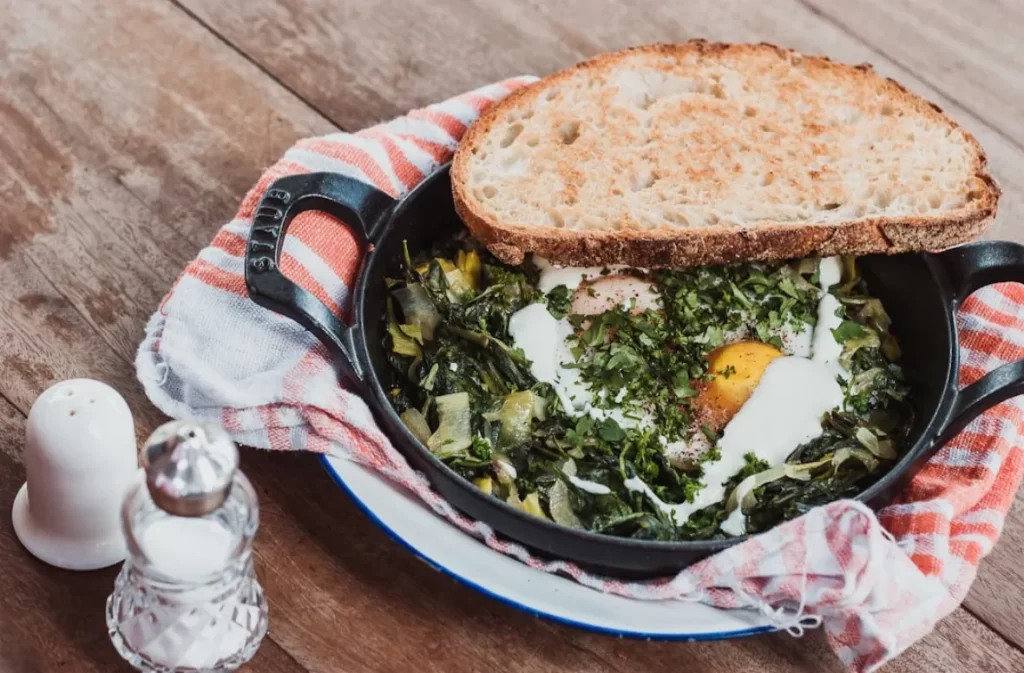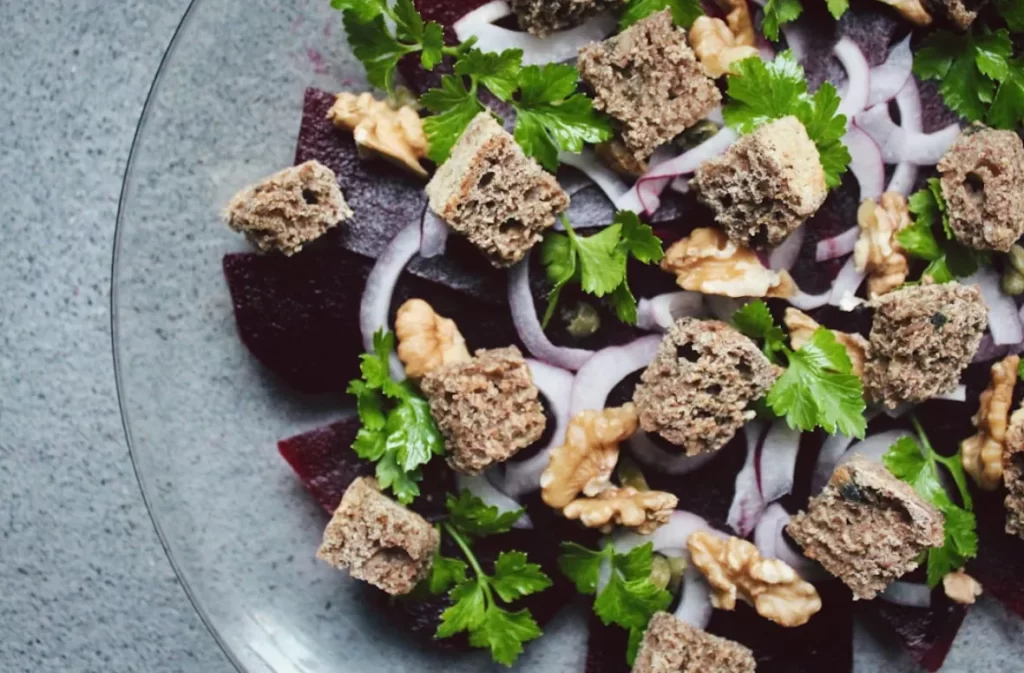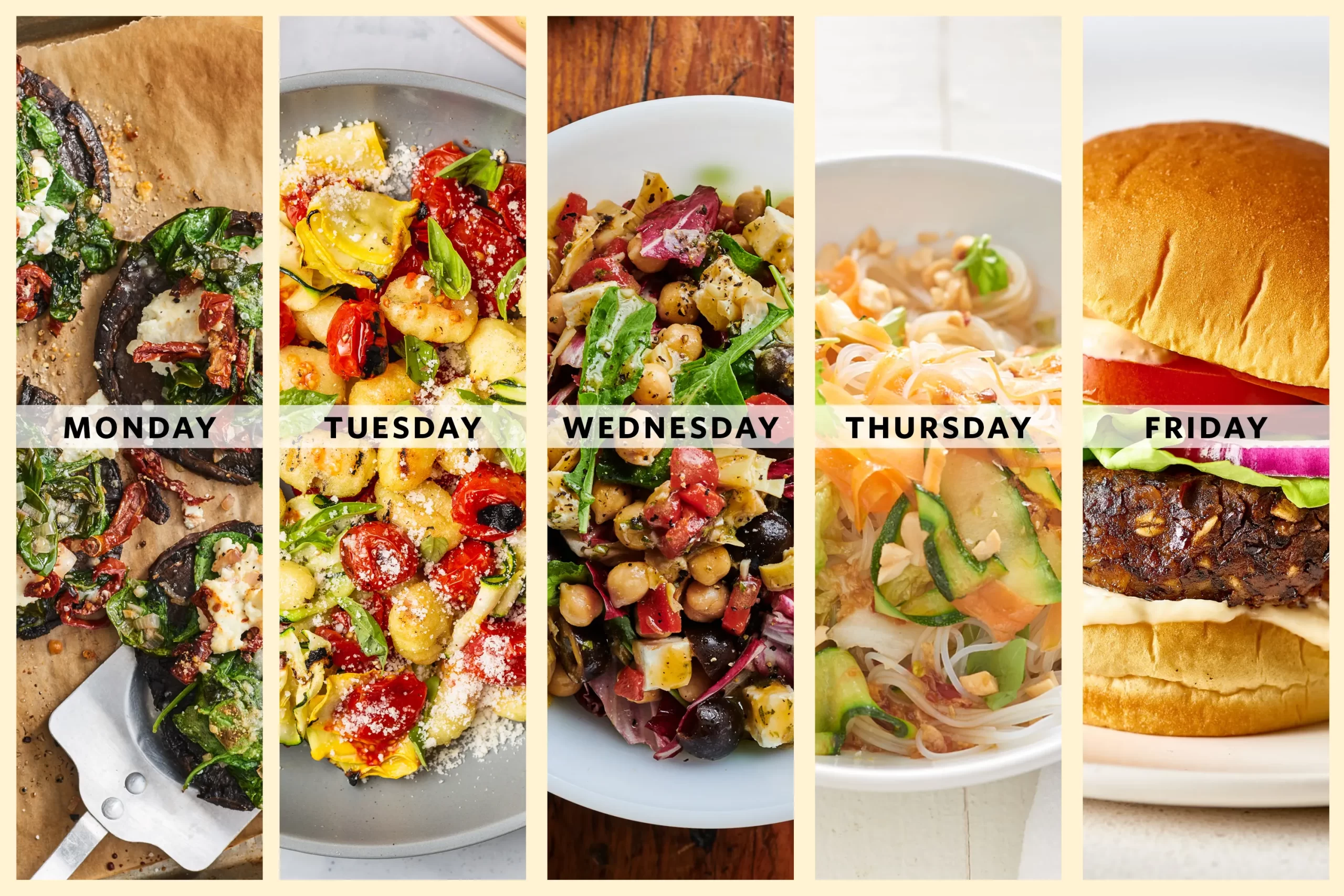Vegetarian meal plans for beginners provide a beginner’s guide to vegan meal options, including vegetarian enchiladas that use many nutritious ingredients to simplify the eating routine.
There is no denying the fact that a vegetarian diet is a delicious vegetarian option for anyone looking to live a more wholesome lifestyle, particularly with enticing dishes like enchiladas and pad thai.
Still, one of the pain points regarding a vegan diet is the probability of nutritional deficiency and, consequently, a negative impact on health, which can be addressed by following a vegetarian diet plan.
However, a well-curated vegan meal plan offers diverse options, ensuring a balanced approach to gaining impactful nutrition such as iron, zinc, calcium, vitamin D, vitamin B12, and omega-3 fatty acids, especially on day 7.
There’s no denying that a vegan diet is getting popular every other day with drool-worthy vegetarian recipes, including pad thai and other enticing dishes, convincing you to start your vegetarian transition.
No matter how stress-free and attractive a vegan diet may look, it takes a slow and steady approach to adopt it permanently, especially when transitioning to a meat-free lifestyle, often with guidance from a registered dietitian.
Vegetarian Meal Plans for Beginners

A vegetarian diet means eating only plants while avoiding meat, including animals, birds, and fish meat, and following a vegetarian eating pattern can be rewarding.
Also known as the lacto-vo vegetarian diet, it also includes dairy products like eggs, milk, cheese, and butter. Here’s how you can make your plan to be a vegan a possibility so you’ll enjoy a variety of plant-based options, including simple-to-prepare meals.
Commence at Gradual and Steady Pace
Vegetarian meal plans for beginners suggest a slow transition to a complete vegan diet instead of a headstart with over-ambitious goals and getting flustered soon, especially by day 3.
Review your diet pattern to know how frequently vegetables are in your meals. Whatever the frequency of eating veggies you get, double that amount for the initial couple of weeks to kickstart your healthy vegetarian journey, aiming for a meat-free diet that includes a lot of garden favorites.
Add whole grains, beans, dry fruits, nuts, and seeds to make your diet more sustainable as part of your meal prep. If you find it more challenging or aren’t sure of the nutritional value of your diet, you can always consult a practicing dietitian who can help you navigate quick weeknight meal options.
He can advise you on better options to make sure your plan includes the right balance of nutrition intake, mainly focusing on plant-based protein and healthy fats.
Hunt for a Replacement for Meat

It might feel demoralizing and disappointing to look for vegan recipes, but the better strategy would be to look for a substitute like mozzarella for the meat in your diet meals.
The idea is to change the meat ingredient with a vegetarian substitute in the recipe instead of looking for new ones, such as quinoa or ricotta, particularly on day 5.
Generally, beans and pulses are suitable substitutes for meat; nutritious options like black beans, lentils, chickpeas, and tofu can be added to recipes like chickpea noodle soup, lentil tacos, and vegetarian enchiladas.
Since these subs are rich in proteins, fiber, antioxidants, and essential nutrients, they fit nicely into healthy vegetarian meal prep, mainly when you include options like bean burgers.
Embrace Carbs and Whole Grains
Vegetarian meal plans for beginners suggest the inclusion of nutritious carbs such as sweet potato, black beans, boiled quinoa, and pasta, along with options like ravioli, to make it more effective for a balanced diet.
When cutting out meat, try filling your plate with either of these veggie carb options as a sub for the meat. You can add unrefined grains such as farro, oats, buckwheat, and healthy fats to make it a fiber and protein-rich meal, incorporating some cumin for extra flavor.
Be attentive to artificial meat alternatives.
The internet is whole of information about how to make a 7-day vegetarian meal plan for beginners, and some recommend replacing meat with faux meat meals.
While this could be an excellent option for beginners to kickstart their ambitious goals, there is a need to be extra vigilant before you buy any meat-free products, such as bean burgers or other items from the farmers market.
The best way to ensure its credibility is to check that it is minimally processed and contains healthy ingredients with minimum salt content, especially in vegetarian dinner recipes that might include bolognese.
Generally, eating unprocessed, half-cooked (except for the meat), and unrefined is always recommended. Food options like pita can be a great addition to your plant-based meals for a healthier impact.
Stay Mindful of Potential Nutrient Gaps

Nutrient gap or deficiency is the only concern that needs attention if meat isn’t replaced with nutritious ingredients like plant-based protein. For example, vitamin B12, essential for nerve and blood cell health, is complex to find in vegetables and fruits.
To make sure you don’t develop B12 deficiency or zinc deficiency, dietitians advise B12 supplement intake, especially when following a high-protein vegetarian meal plan that considers your height and weight.
The same goes for iron and mineral constituents, as the exact type of iron in vegetables isn’t absorbed in the body. It is essential to double the iron-rich vegetable intake to avoid iron deficiency. Or you can increase your Vitamin C intake or have fortified grain products, pesto, and sesame seeds as part of your vegetarian diet plan.
Dietitians suggest that vegetarian meal plans for beginners are to take iron-rich foods such as tofu, chickpeas, and edamame and combine them with red and green peppers, broccoli, and Brussels sprouts because they are rich in vitamin C.
Gradually but steadily, you can reach the goal from meat meals to vegetarian meal plans for beginners by understanding the nitty-gritty details of the nutrient counts and the available Mediterranean diet options.
Click to read more articles about high-protein vegetarian meals that are simple to prepare, such as those featuring a lot of garden favorites, to enhance your diet with delicious vegetarian options. Food.




